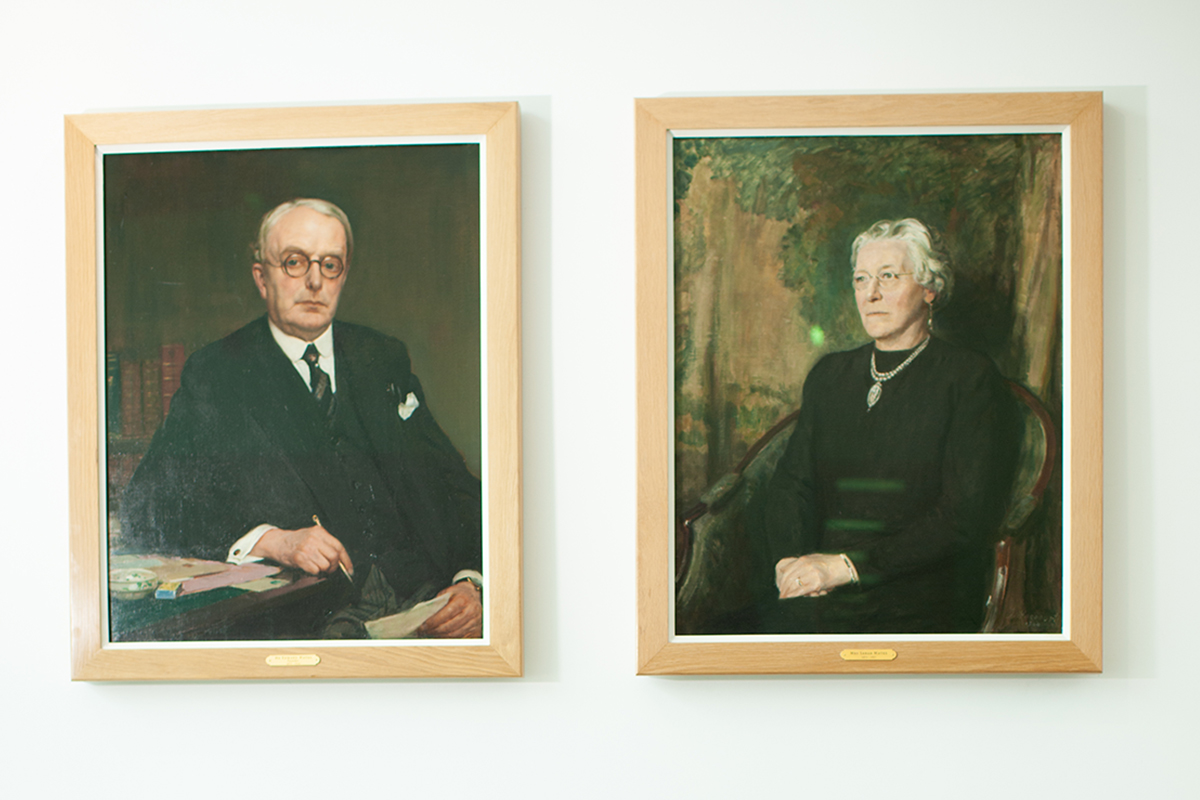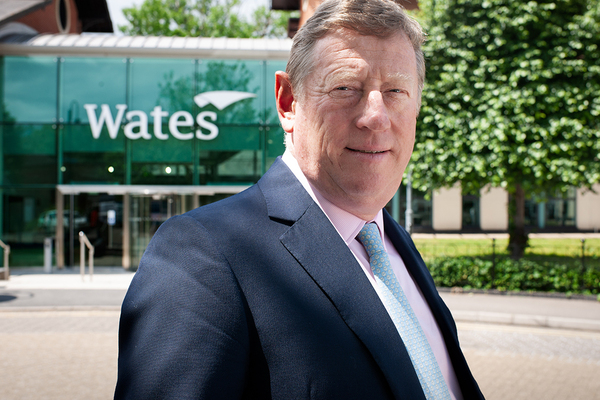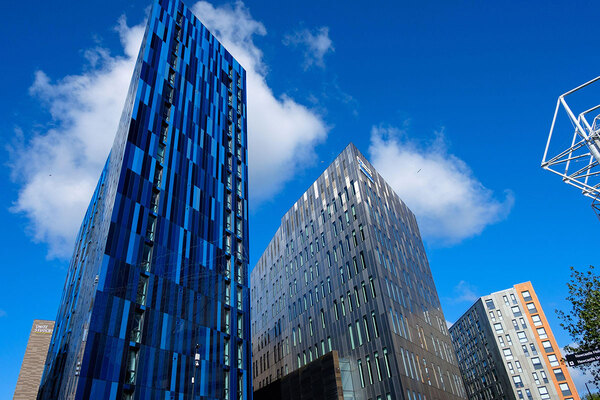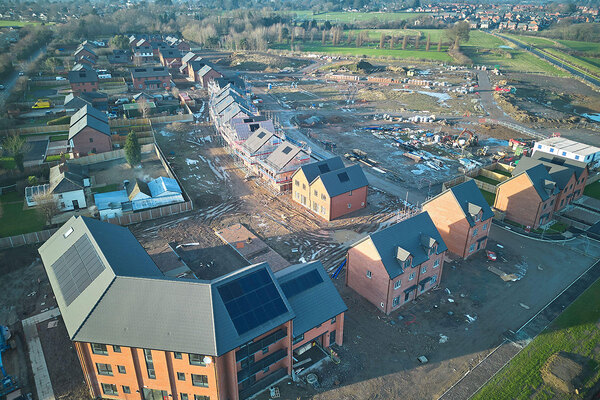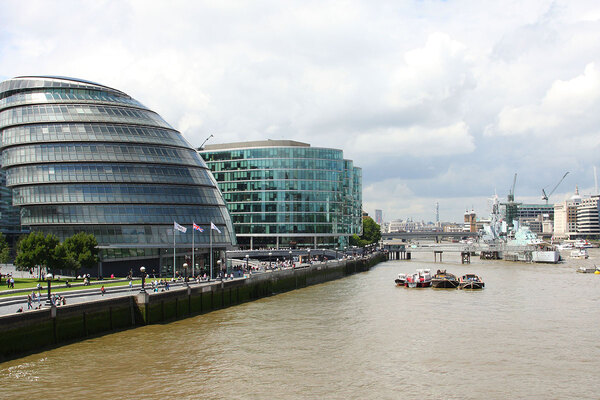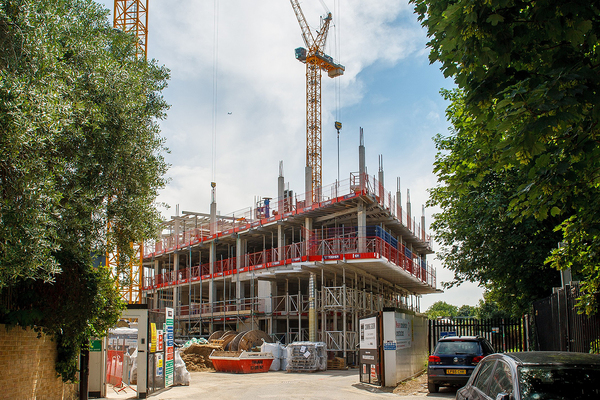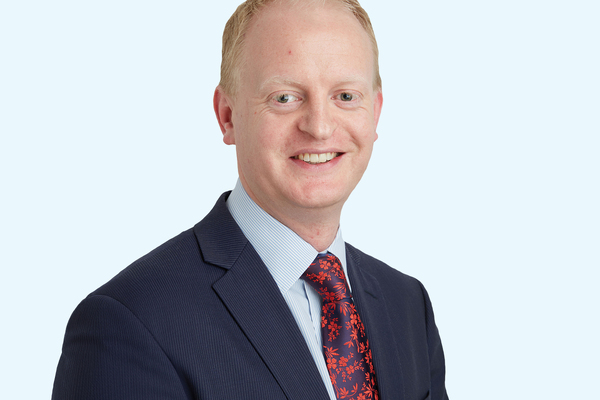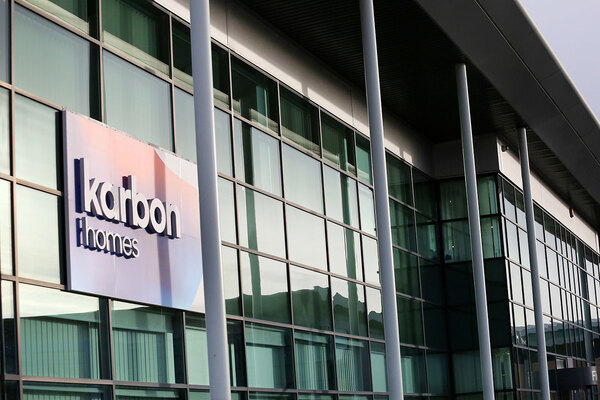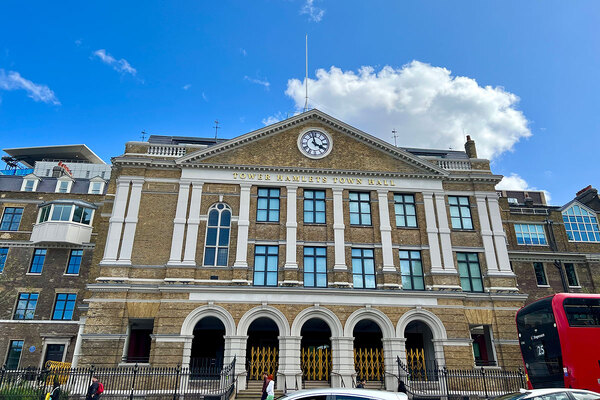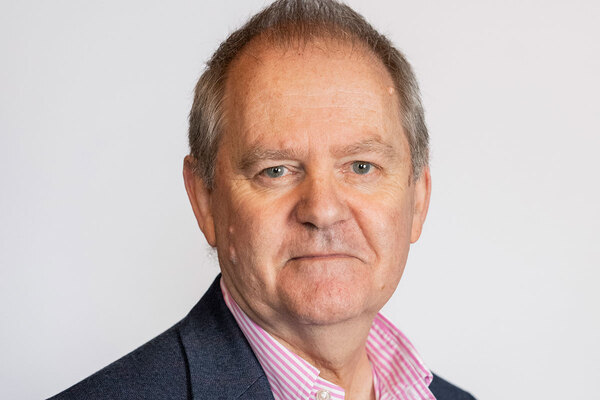Keeping it in the family: we meet Sir James Wates
As chair of a giant construction company with more than a century of family history, Sir James Wates has some big responsibilities, as Rhiannon Curry finds out. Photography by Matt Gore
Sir James Wates exudes a relaxed confidence as he sits in a meeting room inside Wates’ vast offices in Leatherhead, Surrey. And it is easy to see why. He is in the fourth generation of his family to take the helm of the construction, property services and development business, so he is very much on home territory.
But the affable 59-year-old – who was knighted in the Queen’s Birthday Honours List this year – insists that he is not only the previous chair’s son, parachuted into the company at the top level when his time came: he has been in construction his entire career. “I’m very much a builder,” he quips, even if his suit and the corporate surroundings suggest otherwise.
When Sir James’ great-grandfather Edward built his first home in 1897 in Purley, he could not have foreseen the growth the next century or so would bring. The businessman, who had originally run a furniture company, built the house, sold it, and used the proceeds to build a second home on the neighbouring plot.
“There’s nothing like going round housing sites. There’s nothing like the smell of wet concrete. I just love it”
From there he launched a development business, and now the wider Wates Group consists of eight different divisions – spanning construction, residential development, maintenance services and managed office space. Earlier this month the company launched a new facilities management arm, expanding its services to its existing clients and pushing into new markets. In 2018, Wates had a turnover of £1.6bn, and recorded pre-tax profits of almost £36m. Edward Wates’ portrait, along with a painting of his wife, Sarah, hangs in the office lobby as a reminder of where the business began.
The younger Sir James has, in some ways, an unenviable task: as Wates’ chair he is not only the custodian of well over a century of family history, but he is also responsible for driving the business to its next phase, in order to hand it over to future generations.
In 2000, the business appointed a non-family chief executive for the first time. “That was a seminal moment,” Sir James says. “It said we wanted to be more than just a family business – we wanted to be a very good family business and a very well run family business, and it was about stepping up our game.”
He says that the change allowed the business to “focus on performance, really reach out to our customers and understand what drove them”.
As a result, the business was able to focus its efforts on its Living Space division, which offers planned and responsive maintenance services to social housing providers. Formed off the back of the Decent Homes Programme, it is now the part of the business where Sir James says he has seen the most growth, and makes up 25% of the company, managing thousands of homes. “It’s been a tremendous success for us,” he says.
He says that part of this success is down to being willing to take time to understand what both the residents and the housing association or local authority want – something that is particularly important when working in mixed-tenure environments.
“What we have to do is really understand the different needs of those people,” he explains, highlighting as an example the need to be sensitive to disruption to homeowners when carrying out work on rented properties.
“[The business] is limited in its scope to grow by the amount of [housing] stock in the country, so the only way we can get new business is to take business from other people. And the way we do that is by focusing on doing it really well, understanding the customer, and delivering a
service at the right price,” he says.
Building and maintaining trust is one of his key themes. Last year, he was asked by the government to establish a new code for the corporate governance of large private companies, working with the Financial Reporting Council. One of the key aims of the code was to “rebuild the trust between society and business”, he explains.
“We had a debate about trust. Is it taken for granted until it’s abused, or has it got to be earned?” he asks. “I don’t know the answer, but on the basis that you’re innocent until you’re proven guilty, maybe you should be trusted until you’re not.”
He adds: “Having said that, I think trust does get earned, and I am very conscious that we’ve spent 122 years building our reputation for being a trusted partner and somebody you would want to do business with. You transgress once and your reputation is trashed and it takes an awfully long time to rebuild it.”
This is especially crucial when working with public sector organisations like social housing providers, he says.
“I’m totally focused – and I know the team are totally focused – on ensuring that we are a trusted partner and people do want to work with us because we do what we say we’re going to do, and we do it on a fair basis, and because we care, and because we believe there’s a better way of doing things.”
Wates has been successful in partnering with housing associations and local authorities to deliver large-scale regeneration projects – including a 3,000-home development with Havering Council that will run for the next 12 to 15 years – and redeveloping estates, such as the Arthur Street Estate in Erith, south London.
It is clear that Sir James thinks private businesses have a role to play in alleviating the UK’s housing crisis, and he says he is willing to think outside the box to get things moving.
“The planning process has always been one of the challenges we’ve faced in housebuilding – although having said that, it’s better than it was,” he says.
The government should encourage local authorities to release brownfield land for development, he adds, and local plans should contain more details about what sort of housing is needed where, including social housing and homes for private rent.
But he thinks the real gains could be made in the building process itself.
“What we need is a solution to fast building,” he explains. “When you say ‘modularisation’ I think a lot of people hark back to post-war pre-fabs and think that’s what you’re going to get, but it’s not. We’ve moved on a long way from that.”
He refers to the 1950s and 1960s – “the last great time of systemised building” – as a period in which the construction industry came up with solutions to a housing shortage, and fast.
“I think trust does get earned. You transgress once and your reputation is trashed and it takes an awfully long time to rebuild it”
“We didn’t get that right in planning terms or construction terms, but as a philosophy,” he says, warming to his subject. “The industry was investing in research and development to come up with a solution. If we had confidence as an industry that there was a public housing programme, for example, of so many hundred-thousand units a year, then in my view the industry could step up and, come up with solutions like in the ’50s and ’60s.”
Modular construction could be the answer, he says, and he reveals that although the business has looked into this, it has not yet taken the step of committing to a factory, as some of its competitors have. “But we’re increasingly looking at modularisation on product,” he adds.
Building entire homes using modular methods has its drawbacks, he says. “Different people want different things – people live differently. Taking that into a modularised solution is quite difficult.”
Sir James visibly lights up when talking about the company’s housing projects; after many years, it is still where his passion lies. “There’s nothing like going round housing sites. There’s nothing like the smell of wet concrete. I just love it,” he exclaims, laughing.
"What we have to do is to be fleet of foot, to move with the markets we want to be in, and not hang around on a melting iceberg"
His induction into the family firm began as a boy when his father, Michael Wates, who was chair of the group for 26 years, took him around sites on Saturday mornings. “He used to drag me round when he was doing site visits and I used to enjoy that. I started working during summer holidays on housing sites in 1975, when I was 15,” he says.
After leaving university in 1983, he joined the business full time as a management trainee in the construction division and has been there ever since, working his way up to be appointed to the Wates Group board in 1997. He became the group’s chair in 2013.
When you run a business with such a long-term view, navigating the ups and downs of the market is par for the course, he says. The outsourcing and construction sectors, where Wates wins much of its work, have had a disastrous couple of years: Carillion infamously collapsed in January 2018, while Kier is navigating financial problems amid falling business. Other firms have cited uncertainty in the market and looming materials and skills shortages.
But Sir James is pragmatic about Wates’ progress. “As a private business we take a long-term view on life; we’re not driven by short-term growth,” he says. “We don’t have to satisfy the market. What we have to do is deliver consistent returns for our shareholders on an ongoing basis.”
He is keen not to “store up problems for tomorrow”, he says. But the business has come through difficult conditions before. “One thing is for sure: during my time in senior positions in the business we’ve seen peaks and troughs. We’ve had major recessions and major periods of growth,” he points out.
He concedes that the current economic uncertainty prompted by the Brexit referendum has put some projects on hold, but he says he is not unduly worried about a mass exodus of European Union workers when the UK leaves the bloc.
For now, he has no plans to take the business to new global markets, preferring to concentrate on its home turf. “There is a huge amount to do better and I think if we continue to do better then we will continue to grow our share of the market here,” he says.
So what is the family’s plan for succession? Sir James says that he and his cousins have 18 children involved in the business, and that his two sons, the eldest of the group, are interested in careers in real estate and construction. “I haven’t pushed them!” he says with a grin.
“What we want to do is hand over a stronger, more sustainable business to that generation. How it will look, I don’t know, but what we have to do – and we always have been doing – is to be fleet of foot, to move with the markets we want to be in, and not hang around on a melting iceberg.”
For now, he is content to keep driving the business on by winning market share and offering more to clients.
“Really it’s a relentless focus on doing what we’re good at, continuing to do it well, and making the barrier to entry to our competitors the fact that we are the trusted partner that people want to work with,” he says.
There is plenty at stake, but this family is planning on staying the course.





